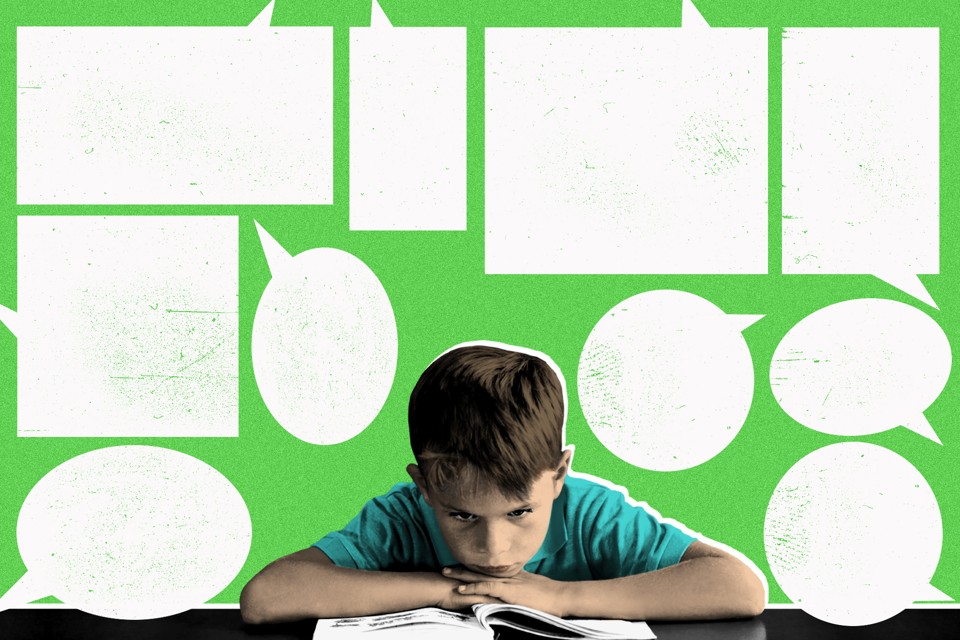Will These Education Buzzwords Persevere Under Trump?
Ten concepts that gained lots of traction under the Obama administration

School choice may be the popular kid in the education-jargon lunchroom right now, but it’s certainly not the only term that’s gotten a lot of buzz. Education Secretary-nominee Betsy DeVos will almost certainly bring with her a new set of vocabulary terms, but that doesn’t mean the U.S. Education Department will sharply depart from the education concepts the Obama administration either popularized or helped propagate. Education-related vocabulary tends to be needlessly clunky, but these 10 terms from the past eight years may—or may not—have some staying power.
Achievement Gap
Definition: When there is a statistically significant difference in two groups of students’ test scores, that difference is known as the achievement gap. Simply put, there is hard evidence of disparities in performance based on factors like race, gender, and socioeconomic status. One of the most mainstream of the buzzwords on this list, the existence of the achievement gap is oftentimes used as a catch-all to explain the failures of the education system to act as an engine of upward mobility.
Background: The National Center for Education Statistics has studied the achievement gaps between white and Hispanic students as well as white and black students, and one goal of President Obama’s My Brother’s Keeper initiative was to help close these disparities. Some research shows charter schools—for which DeVos has strongly advocated—are effective in shrinking the achievement gap, though other research asserts the opposite. Ultimately, it would seem difficult for the new administration to shy away from referencing the phenomenon completely. The civil-rights issues exemplified by the achievement gap are, to a large extent, at the heart of the Department of Education’s existential purpose.
Here’s what former President Barack Obama said about achievement gaps in 2007:
Blacks are less likely in their schools to have adequate funding. We have less-qualified teachers in those schools. We have fewer textbooks in those schools. We got in some schools rats outnumbering computers. That's called the achievement gap. You've got a health care gap and you've got an achievement gap.
Links to some of The Atlantic’s past coverage:
How the Stress of Racism Affects Learning | Melinda Anderson
The Challenge of Educational Inequality | Ronald BrownsteinIn Wealthier School Districts, Students Are Farther Apart | Emily DeRuy
The Ignored Science That Could Help Close the Achievement Gap | Hayley Glatter
In Pursuit of Integration | Alia Wong
Data-Driven Instruction
Definition: This model is a deliberate and systematic measurement approach to student improvement. Many explanations of data-driven instruction include a cyclical element: Students take some form of assessment, the results from that assessment are collected and considered, and action is taken in response to those results. Then the process begins again.
Background: Data-driven instruction seems antithetical to many of the other terms on this list. It feels sterile and narrow-minded in context with a “whole child” approach emphasizing soft skills and emotional growth. Libraries could be filled with the novels written about the short- and long-term problems with teaching to a test; standardized testing is an imperfect measurement, but data-driven instruction can go beyond Scantron tests and operate as a results-oriented model.Links to some of The Atlantic’s past coverage:
What Happened to the Common Core Debate? | Priscilla Alvarez
The Data-Driven Parent | Mya Frazier
What Happens When Students Control Their Own Education? | Emily Richmond
The Disproportionate Stress Plaguing American Teachers | Timothy Walker
Failure
Definition: No, this isn’t a trick question. Failure is the opposite of success. A child fails when they have not adequately done something required, desired, or The Education Buzzwords That Will Persevere Under Trump - The Atlantic:

